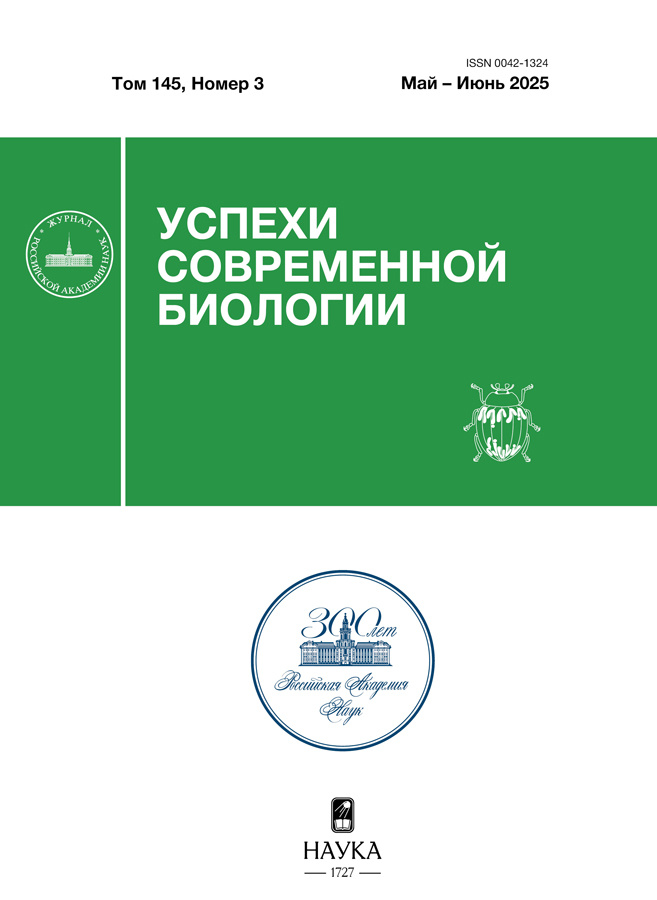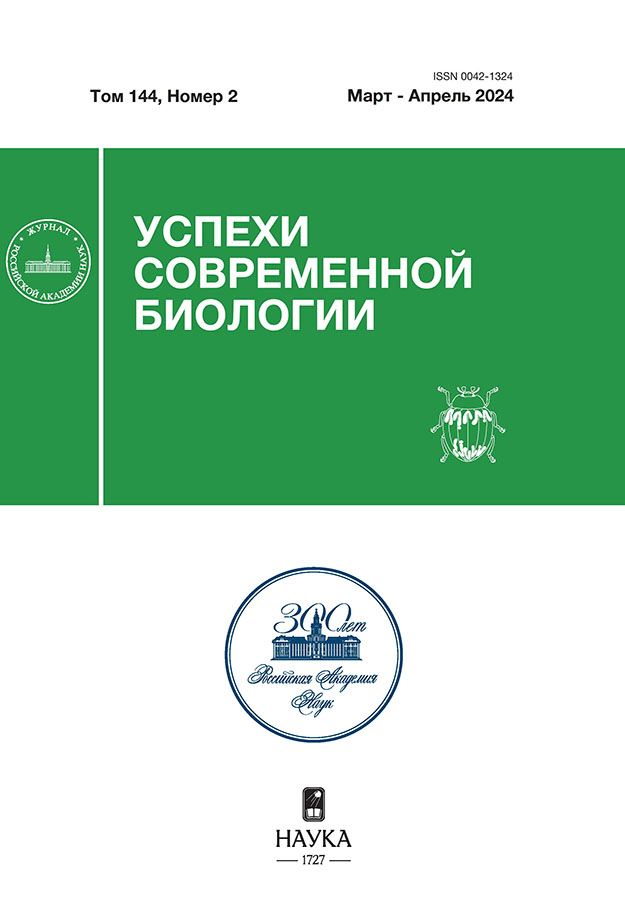Перспективы применения тимохинона (компонента Nigella sativa) в профилактике и терапии нейропатологий
- Авторы: Засухина Г.Д.1, Максимова Т.Н.2
-
Учреждения:
- Институт общей генетики им. Н.И. Вавилова РАН
- Первый Московский государственный медицинский университет им. И.М. Сеченова
- Выпуск: Том 144, № 2 (2024)
- Страницы: 165-170
- Раздел: Статьи
- Статья получена: 02.02.2025
- Статья опубликована: 10.09.2024
- URL: https://rjpbr.com/0042-1324/article/view/653205
- DOI: https://doi.org/10.31857/S0042132424020013
- EDN: https://elibrary.ru/RIGUAH
- ID: 653205
Цитировать
Полный текст
Аннотация
Черный тмин и его компонент тимохинон известны как препараты, характеризующиеся широким спектром фармакологической активности: иммуномодулирующей, антивоспалительной, антимикробной, антивирусной, антинеопластической. Эти препараты обладают также нейропротекторными свойствами при нейродегенеративных заболеваниях (болезни Альцгеймера, Паркинсона), ишемии, эпилепсии, энцефаломиелитах, травматических повреждениях головного мозга. Антиоксидантная активность, повышение экспрессии нейропротекторных генов и протеинов при снижении активности провоспалительных цитокинов и NF-кB-сигнального пути, играющего ключевую роль в нейровоспалении, являются основными механизмами действия. Отдельный раздел посвящен влиянию черного тмина и тимохинона на течение депрессии – широко распространенного и социально значимого заболевания. Снижение признаков депрессии и повышение уровня нейропротекторного фактора, относящегося к семейству нейтрофинов, – характерного маркера при депрессии, описано у 54 пациентов с депрессией. В обзоре обсуждаются перспективы профилактики и терапии этими препаратами при патологии ЦНС.
Ключевые слова
Полный текст
Об авторах
Г. Д. Засухина
Институт общей генетики им. Н.И. Вавилова РАН
Автор, ответственный за переписку.
Email: zasukhina@vigg.ru
Россия, Москва
Т. Н. Максимова
Первый Московский государственный медицинский университет им. И.М. Сеченова
Email: zasukhina@vigg.ru
Россия, Москва
Список литературы
- Жанатаев А.К., Кулакова А.В., Дурнев А.Д. Модифицирующее действие метформина на цитогенетические эффекты доксорубицина и циклофосфамида у мышей // Генет. токсикол. 2023. Т. 21 (1). С. 53–58.
- Салеева Д.В., Раева Н.Ф., Абдуллаев С.А. и др. Профилактический и терапевтический потенциал тимохинона при ряде патологий человека на основе определения активации клеточных компонентов, осуществляющих защитные функции, по активности генов и некодирующих РНК // Госп. мед. наука практ. 2023. Т. 6 (2). С. 27–36.
- Alhibshi A., Odawara A., Suzuki I. Neuroprotective efficacy of thymoquinone against amyloid beta-induced neurotoxicity in human induced pluripotent stem cell-derived cholinergic neurons // Biochem. Biophis. Rep. 2019. V. 17. P. 122–126.
- Anaeigoudari A. Antidepressant and antinociceptive effects of Nigella sativa and its main constituent, thymoquinone: a literature review // As. Pacif. J. Trop. Biomed. 2022. V. 12 (2). P. 495–503.
- Cascella M., Bimonte S., Barbieri A. et al. Dissecting the potential roles of Nigella sativa and thymoquinone on prevention and the progression of Alzheimer’s disease // Front. Aging Neurosci. 2018. V. 10. P. 16.
- Ceylan T., Akin A., Karabulut A. et al. Therapeutic effect of thymoquinone on brain damage caused by nonylphenol exposure in rats // J. Biochem. Mol. Toxicol. 2023. V. 37. P. e23471.
- Cobley J., Fiorello M., Bailey D. 13 reasons why the brain is susceptible to oxidative stress // Redox Biol. 2018. V. 15. P. 490–503.
- Cobourne-Duval M., Taka E., Mendonca P., Soliman K. Thymoquinone increases the expression of neuroprotective proteins while decreasing the expression of pro-inflammatory cytokines and the gene expression NF-кB pathway signaling targets in LPS/IFNγ-activated BV-2 microglia cells // J. Neuroimmunol. 2018. V. 320. P. 87–97.
- Dong J., Zhang X., Wang S. et al. Thymoquinone prevents dopaminergic neurodegeneration by attenuating oxidative stress via the Nrf2/ARE pathway // Front. Pharmacol. 2021. V. 11. P. 11615598.
- Farkhondeh T., Samarghandian S., Shahri A., Samini F. The neuroprotective effects of thymoquinone: a review // Dose Response. 2018. V. 16. P. 1559325818761455.
- Thériauit F., Gardner W., Momoli F. et al. Mental health service use in depressed military personnel: a systematic review // Mil. Med. 2020. V. 185. P. e1255–e1262.
- Hosseini M., Zakeri S., Khoshdas S. et al. The effects of Nigella sativa hydro-alcoholic extract and thymoquinone on lipopolysaccharide-induced depression like behavior in rats // J. Pharm. Bioallied Sci. 2012. V. 4. P. 219–225.
- Isaev N., Chetverikov N., Stelmashook E. et al. Thymoquinone as potential neuroprotector in acute and chronic forms of cerebral pathology // Biochemictry. 2020. V. 85. P. 167–176.
- Isaev N., Genrikhs E., Stelmashook E. Antioxidant thymoquinone and its potential in the treatment of neurological diseases // Antioxidants. 2023. V. 12. P. 433.
- Ismail N., Ismail M., Mazlan M. et al. Thymoquinone prevents β-amyloid neurotoxicity in primary cultured cerebellar granule neurons // Cell. Mol. Neurobiol. 2013. V. 33. P. 1159–1169.
- Kanter М. Nigella sativa and derived thymoqinone prevents hippocampal neurodegeneration after chronic toluene exposure in rats // Neurochem. Res. 2008. V. 33. P. 579–588.
- Khan A., Vaibhav K., Javed H. et al. Attenuation of Aβ-induced neurotoxicity by thymoquinone via inhibition of mitochondrial dysfunction and oxidative stress // Mol. Cell. Biochem. 2012. V. 369. P. 55–65.
- Khan F., Mostaid S., Apu M. Molecular signaling pathway targeted therapeutic potential of thymoquinone in Alzheimer’s disease // Heliyon. 2022. V. 8. P. e09874.
- Krewenska С., Rizzi S., Nguyen C. et al. Radical scavenging is not involved in thymoquinone-induced cell protection in neural oxidative stress models // Antioxidants. 2023. V. 12. P. 858.
- Rahmani A., Maleki V., Niknafs B. et al. Effect of Nigella sativa supplementation on kidney function, glycemic control, oxidative stress, inflammation, quality of live, and depression in diabetic hemodialysis patients: study protocol for a double-blind randomized controlled trial // Trials. 2022. V. 23. P. 111.
- Sadeghi E., Imenshahidi M., Hosseeinzadeh H. Molecular mechanisms and signaling pathhwas of black cumin (Nigella sativa) and its active constituent, thymoquinone: a review // Mol. Biol. Rep. 2023. V. 50. P. 5439– 5454.
- Samarghandian S., Farkhondeh T., Samini F. A review on possible therapeutic effect of Nigella sativa and thymoquinone in neurodegenerative diseases // CNS Neurol. Disord. Drug Targets. 2018. V. 17. P. 412–420.
- Taysi S., Algburi F., Mohammed Z. et al. Thymoquinone: a review on its pharmacological important and its association with oxidative stress, COVID-19 and radiotherapy // Mini Rev. Med. Chem. 2022. V. 22. P. 1847–1875.
Дополнительные файлы











